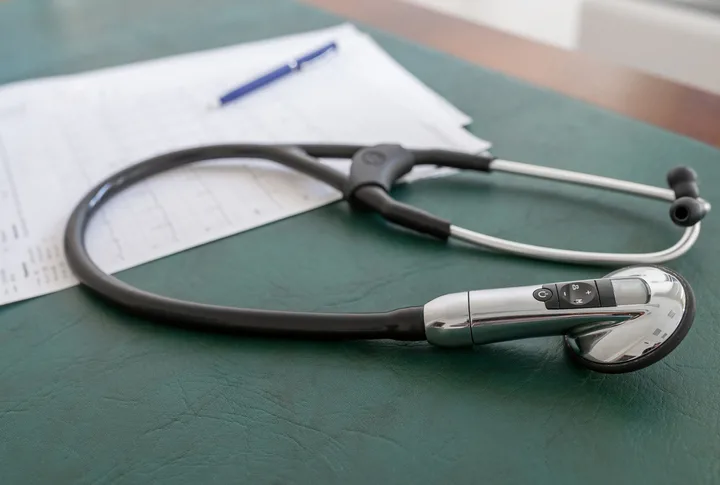
Source: Ekaterina Kiseleva / Getty
Dr. Tosha Rogers answers vital questions about pain management and countering the harmful impact that systemic racism has had on Black health.
The HIV education advocate and OB-GYN sits down with host Ericka Dunlap to discuss how patients can approach healthcare despite deep-rooted biases about Black health.
The Advil Pain Equity Project is shedding light on this matter and working toward equitable and accessible pain relief for Black communities.
Safe and Effective Pain Relief
“There’s a myth that still exists today that Black people have a higher threshold for pain than others,” says Dunlap. “And with maternal death rates being highest for Black women in the U.S., it’s a myth that needs to be dispelled and treated with urgent attention.”
When it comes to treating aches and pains, Dr. Rogers tells her patients, “Never assume that the strongest medication is the best medication. One of my go-tos, one of my favorites, is Advil. And the reason is because not only does it treat inflammation, it treats pain … So it’s a medication that has multiple uses.”
Why We Need Culturally Competent Doctors
“[Systemic racism] manifests in so many different ways,” Dunlap says. “And regardless of socioeconomic status, Black people remain in danger of falling victim to health inequity and healthcare biases. So would you agree that our reproductive health needs in particular warrant a more discerning, vigilant approach?”
“Absolutely, 100 percent,” Dr. Rogers agrees. “Our reproductive issues and concerns in the Black community are very much unique to our culture.”
Cultural competence is defined as “the ability of providers and organizations to effectively deliver healthcare services that meet the social, cultural, and linguistic needs of patients.” Having cultural awareness is incredibly important for doctors and other healthcare professionals to be able to provide quality medical care and minimize racial disparities in healthcare.
“You absolutely have to understand the culture,” the doctor tells Dunlap. “And if you do not, you will not be effective in caring for Black patients.”
The state of Black health relies on teaching cultural competence to medical professionals in the field, the doctor adds. “It is important for health systems to teach cultural competency. Every culture is going to be different. Wherever you are practicing … you have to understand their culture.”
Empowered To Be Your Own Health Advocate
In the face of health inequity and biases that impact Black health, Dr. Rogers affirms that patients have the power to advocate for better treatment.
“If it’s a doctor’s office, if it’s a hospital, there are chains of command. So there’s always someone to speak to, to be able to articulate your concerns. And don’t be afraid to put it in writing,” she explains. “In the worst case scenario, if you feel like you’re not being treated fairly, don’t be afraid to involve the state medical board. They are obligated to investigate every claim, and they will.”
The Advil Pain Equity Project is facilitating these necessary conversations to work toward a system in which pain relief is accessible and equitable for Black communities everywhere.
Addressing Pain Bias
The Advil Pain Equity Project is a multi-year commitment to addressing systemic racial bias in the diagnosis and treatment of pain, at the source.
Marking the launch of The Advil Pain Equity Project, Advil is:
- Providing the first-ever grants through The Advil Pain Equity Fund to Morehouse School of Medicine and BLKHLTH as they partner with Advil to develop a pain equity course that will be made available to medical students across the country next year.
- Launching the campaign, Believe My Pain, which is focused on providing patients and healthcare experts with the opportunity to share their personal experiences with pain inequity.
- Developing digital tools and resources aimed at helping Black patients improve their clinical experiences in the near term, in partnership with BLKHLTH.
Watch more from Advil’s A Healthier Us campaign here.
SEE ALSO:
Dr. Ebony Butler Addresses The Lack Of Black Therapists And Managing Pain
Do Black People Feel Less Pain? White Emergency Room Patients Prescribed Opioids More, Data Shows



